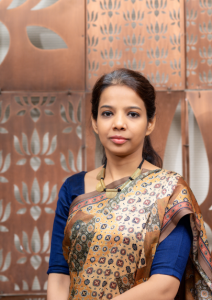Consumer protection in financial services is a core component of Dvara Research’s mission, activities and its advocacy agenda. In this regard, I had the opportunity to participate at Consumers International’s Global Congress 2023, in Nairobi, Kenya, in December 2023.
The Consumers International is a membership organisation for consumer groups around the world, working on an overarching objective of ‘access to safe and sustainable products and services, bringing together over 200 member organisations in more than 100 countries to empower and champion the rights of consumers everywhere’. This Congress is organized every four years, and it brings together Consumers International’s member organisations from across the world for in-person conference-style discussions and governance-related activities. While the former was open to me to participate, the latter was not. Given that the event was held in Kenya, it focused significantly on showcasing the voice of African consumer groups and other civil society actors in matters of consumer safety and protection which was interspersed with insights from regulators and consumer groups of developed countries. Videos of the panels curated are available here (I also moderated a panel titled ‘Unveiling the Cryptocurrency Conundrum’, video available here). As can be seen, the breadth of themes and issues discussed cut across diverse sectors, industries, and people. I will not naively attempt to paraphrase the deliberations, but this post summarizes the key takeaways very well. I will, however, share some observations and reflections.
Every single panel discussion and keynote address was oriented towards upholding the objectives of the consumer, and for the most part, no other conflicting objectives such as profit-making or geopolitics, though important considerations, took precedence over this. Of course, for-profit actors and industry were present and speaking, but none of them were seeking out anything that was tangential or opposed to this objective. It really was the only outcome of interest, and what was on everyone’s minds. The event was also a unique confluence of consumer-focused actors, both as interested individuals and as representatives of organisations from vastly different jurisdictions and contexts, and dealing with diverse challenges in each of these contexts – the Consumers International team pulled off the impossible task of making sure that participants left the event with a rich blend of perspectives, a sure-shot way to expand each of our jurisdiction-specific horizons, frames of thinking and our understanding of limitations. What a pleasure it was to listen to these diverse voices.
I came away with a feeling (just as what I experienced with my engagement in the Civil20 as part of India’s G20 Presidency in 2023) that civil society, with its vitality and diversity, and the absolute impossibility of introducing or expecting homogeneity from it, still forms the closest agent of the people they want to help – and to this end, they must be provided greater participatory and decision-making responsibilities with governments and the private corporate sector – they must be given a serious seat at the table. This call is not new, it has been made many times in the past.
With the advent of advanced technologies that are becoming so much more embedded in the everyday lives of people, consumer groups are indeed beginning to spearhead advocacy towards, and provide the necessary tailwinds, the ammunition, to support regulators and policy makers, to become much more efficient ‘hawks’ in their surveillance, and swifter ‘tigers’ in their leap to action (a comparison to animals I used in a previous piece in relation to financial services). While it can be debated whether each action (by a regulator or policymaker) was appropriate or not, my belief is that technology is unwittingly making it easier for consumer organisations to gather better evidence of harm, institutional misconduct, unfair and malicious practices, and by doing so, become an extension-of-sorts of the policymaker who wishes to have better surveillance at the ‘frontiers’ (be it a digital frontier, a last-mile frontier or an innovation frontier).
I come back thinking about how far India would go to nurture such consumer organisations. I met a handful of such India-based organisations at the event, some known to me already, some new. I met two women who were representing a Mumbai-based organisation that recently celebrated 50 years of existence. I will not ask the question of what their impact has been – the fact that through their work, they carry forward the organisation’s legacy seemed evidence enough. They continue to turn up for Consumers International’s Global Congress to voice their concerns and thereby contribute to the global agenda on consumer protection.



One Response
Great piece, Deepti!